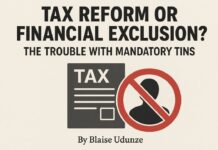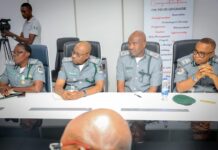Abiodun Jimoh
In a progressive move to bolster women’s political representation in Nigeria, ARDA Development Communication Inc., in collaboration with UN Women and funded by the Canadian Government, recently held a capacity-building workshop for media professionals, including journalists, bloggers, and social media influencers. The training, part of the Advance: Women Political Participation in Nigeria (AWPP) Project, was held at the Lagos Chambers of Commerce and Industry (LCCI) in Alausa, Ikeja.
The workshop highlighted the urgent need for gender parity in political leadership—a key step toward achieving UN Sustainable Development Goal 5 (target 5.5), which calls for full and effective female participation and equal leadership opportunities across decision-making levels.
Facilitator Jesudunsin Osinaike emphasized the systemic barriers that women face in Nigerian politics, pointing out the low number of women in the national assembly as a reflection of these challenges. “This is why we are conducting training sessions, encouraging women to step forward and be represented in politics,” she said, stressing the role of media in amplifying this message to inspire more women to participate in leadership.
Media and development communications specialist Adebisi Adetunji challenged stereotypes about women in leadership, arguing that female leaders are often held to different standards than their male counterparts. “If a male leader corrects his followers, it’s seen as normal. Why should it be different for female leaders?” Adetunji asked, advocating for equitable perceptions of authority. She emphasized the importance of mentorship and creating spaces for women to take on leadership roles traditionally held by men, such as party chairs or secretaries-general, rather than limiting them to roles deemed less influential.
The event called on media professionals to be intentional in challenging unconscious biases and stereotypes in their reporting, promoting an inclusive, gender-sensitive approach. Attendees were urged to formulate action plans to advance women’s political participation, build networks with female leaders, and create a supportive media landscape that encourages women to assume leadership roles.
ARDA-DCI has been at the forefront of sustainable development communication in Nigeria and Africa, working with major partners such as UNICEF, USAID, and John Hopkins University to implement social and behavioral change communication projects. This latest initiative marks another step forward in ARDA-DCI’s ongoing commitment to promoting gender equality in political leadership and governance.














